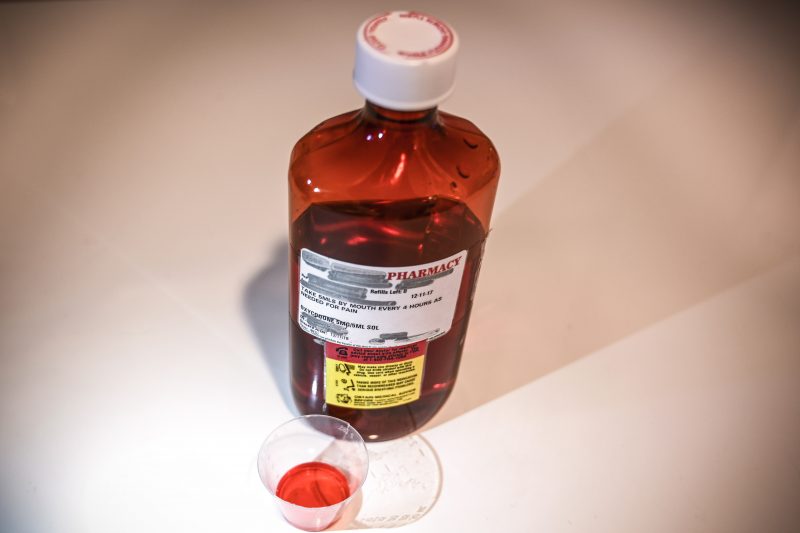Red tape limiting opioid epidemic fight: US doctors’ group
A 500ml bottle of liquid oxycodone, an opioid pain relief medication, and a dose of 5ml of the solution (EVA HAMBACH)
Chicago (AFP) – An influential US doctors group on Thursday said administrative barriers are limiting access to opioid addiction treatment and policymakers should do more to address the deadly epidemic.
The American Medical Association (AMA) released new recommendations to deal with the addiction crisis.
The group’s Opioid Task Force is calling for eliminating barriers such as requiring prior authorizations for addiction treatment.
It also criticized dosage limits known as “step therapy” that reduce or delay adequate access to addiction treatment drugs.
The Chicago-based physicians’ organization said barriers to quick access to comprehensive care are hampering the nation’s response to the opioid and heroin abuse epidemic that has killed hundreds of thousands of Americans over two decades.
In that time, Americans have become addicted to painkillers prescribed by their doctors, assuming they were safe, and many have gone on to take heroin and other street drugs to maintain their addictions.
“We need help from policymakers to ensure that more people have access to treatment,” AMA chief Patrice Harris said in a statement.
The new recommendations come four years after the AMA called on doctors to reduce prescriptions of highly-addictive opioids.
The group says doctors have responded and reduced prescriptions by 33 percent when compared to 2013 figures.
The onus is on state and federal authorities to do more to reduce administrative barriers to treatment for addicted patients, Harris said.
“That’s what is limiting treatment right now,” she added.
The recommendations came days after the nation’s first civil trial against an opioid drug manufacturer began in Oklahoma.
The state is suing Johnson & Johnson and its subsidiary Janssen Pharmaceuticals to hold them accountable for allegedly deceptively marketing opioid painkillers to doctors.
The landmark lawsuit could set an example for nearly 2,000 others, which potentially could be settled in a major class action similar to the 1998 multi-billion-dollar Big Tobacco settlement over the marketing of cigarettes.
Disclaimer: Validity of the above story is for 7 Days from original date of publishing. Source: AFP.


